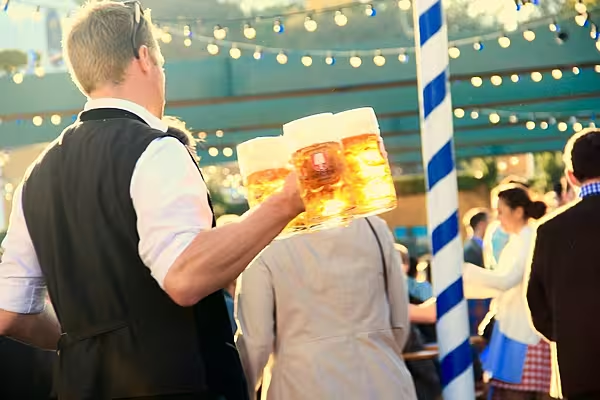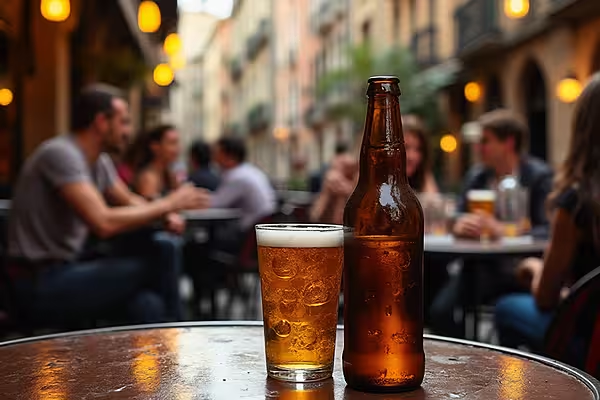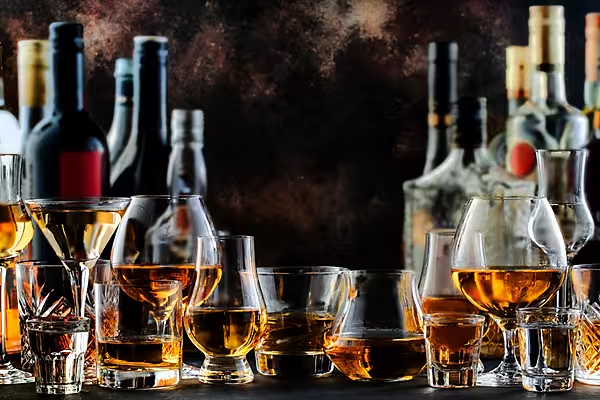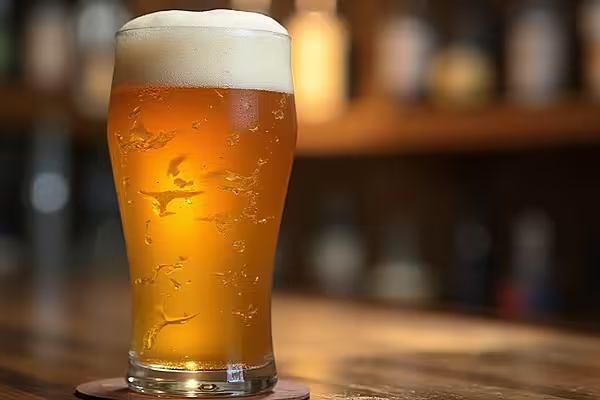Following a 5.1% volume decline last year, the cancellation of the annual Oktoberfest celebrations means that German brewers are likely to continue to see subdued sales in 2021, according to GlobalData.
Around six million people usually attend Oktoberfest in Germany, which takes place in September and October, however authorities pulled the plug on this year's event back in May, in what Munich mayor Dieter Reiter said "wasn't an easy decision".
'Gloomy Outlook' For Beer Sector
Germany's beer market volume dropped to 7.7 million litres last year, with GlobalData analyst Holly Inglis suggesting that the "gloomy outlook" for the trade looks set to continue, despite the lifting of many restrictions.
According to GlobalData, some 16% of German consumers have stopped buying beer through the recent channel in recent months, indicating a potential "long-term downward trend for consumption of the category," said Inglis.
"However, breweries are still attempting to regain consumer focus by continuing to innovate in unique product formulations, that are sustainably focused and promote Germany’s strong beer culture."
Germany's beer sector traditionally sees peaks in beer consumption in the second and third quarters, with the latter boosted by Oktoberfest.
"Despite this year’s cancellation, a date has been set for 2022, bringing a window of opportunity for producers," said Inglis. "Until then, innovations such as ‘festbier’ (festival beers) have been created to celebrate the German beer culture in other ways.”
This includes Berlin's Beer Week Festival, which is expected to go ahead as planned in September 2021, as well as the Kulmach Beer Week in Bavaria, which is due to kick off later this week – while these events are smaller than the annual Bavaria event, they offer an opportunity for German consumers to come together and enjoy domestic beers.
Increased Consumption
“Interestingly, GlobalData’s most recent survey in Germany goes on to detail that 10% of consumers are actively trying to increase consumption of alcoholic beverages," said Inglis.
"Consumers interested in actively drinking more are likely encouraged by experimental variations commonly seen in other alcohol categories. This presents an opportunity for beer producers to innovate production lines that encompass beer with these other alcoholic beverage categories – such as through flavour or occasion-based trends.
"However, given the legacy of German beer culture, which prides itself on traditionalism, this may pose a challenge.”
In April, Germany's German Brewers' Association (Deutsche Brauer-Bund - DBB) issued a statement saying that alcohol-free beer has been the fastest-growing category in the market over the past decade.
© 2021 European Supermarket Magazine – your source for the latest Drinks news. Article by Stephen Wynne-Jones. Click subscribe to sign up to ESM: European Supermarket Magazine.














